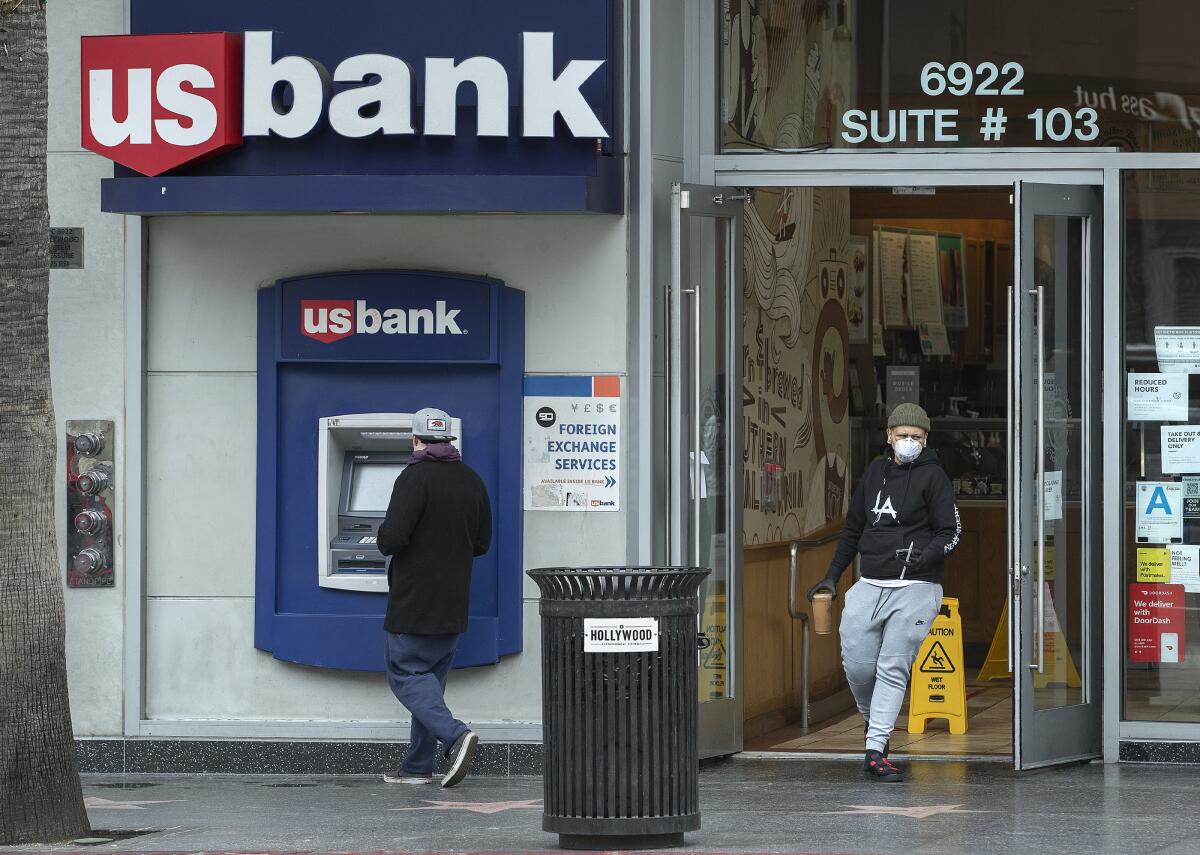Here’s why taking money from retirement accounts to pay bills is dumb

- Share via
Dear Liz: I do not qualify for a coronavirus hardship withdrawal, but I have debt on several credit cards with interest rates above 23%. In 2019, I paid nearly $2,500 in interest charges. I would like to remove $10,000 from my IRA and use it to pay off the debt. I would then put the money that would normally go toward the credit card debt ($500 a month) to pay back the IRA. Would this repayment mitigate some of my tax charges from the withdrawal, and how long do I have to replace the funds, if any?
Answer: Coronavirus hardship withdrawals are available to a large group of people, including those who have lost their jobs or suffered other financial setbacks because of the pandemic, as well as people actually diagnosed with COVID-19, the disease caused by the novel coronavirus.
Coronavirus hardship withdrawals allow people to take out up to $100,000 from individual retirement accounts or 401(k)s without paying early withdrawal penalties or facing mandatory withholding. Income taxes must be paid on the withdrawal, but that bill can be spread over three years.
People who take such withdrawals would have the option of putting the money back within three years. If they can repay the money, they could amend their previous tax returns to get a refund of the taxes they paid on them.
If you don’t qualify for a coronavirus hardship withdrawal, then the rules on taking money from your IRA haven’t changed. You cannot take a loan from an IRA, and any money you withdrew would have to be returned to a qualifying retirement account within 60 days or it’s considered a withdrawal.
You would have to pay income taxes on the withdrawal, plus the 10% federal penalty if you’re under 59½. Most states also tax and penalize such withdrawals.
Even if you could qualify for a coronavirus hardship withdrawal, though, it would be a bad idea to raid your retirement account to pay credit card bills.
Not only is the tax cost high, but you’re also losing the future tax-deferred returns that money could have earned. A $10,000 withdrawal now could mean $100,000 less in retirement funds 30 years from now.
Also, you shouldn’t use an asset that would be protected from creditors to pay debts that could otherwise be erased in case you have to file for bankruptcy.
Too many people drain their 401(k)s and IRAs trying to pay their bills, only to find out too late that their retirement accounts are protected in bankruptcy. Meanwhile, the bills — including credit card balances, medical bills and most other unsecured debts — could have been wiped out.
If you can make your credit card payments but want to reduce your interest costs, you could consider a personal loan to consolidate your debt if your credit is good. If your credit is not good or you are struggling financially, you could contact a credit counselor about a debt management plan that would allow you to pay off your cards over time at lower rates.
You can get referrals from the National Foundation for Credit Counseling.
Another option for people struggling to pay off their credit card debt is to ask the issuers about hardship programs. Many are willing to offer forbearance, which allows cardholders to skip payments, or to temporarily reduce required payments.
If you’re struggling, though, you also should make an appointment with a bankruptcy attorney about your options. You can get referrals from the National Assn. of Consumer Bankruptcy Attorneys.
Where’s my stimulus check?
Dear Liz: My wife and I are retired and don’t have enough income to file tax returns. How can we get our stimulus checks?
Answer: If you get Social Security checks, your stimulus checks will be sent to you automatically, either via direct deposit if that’s how you get your benefits or paper check.
If you don’t collect Social Security yet and didn’t file a tax return for 2018 or 2019 because your income was below the limit to require filing, the IRS.gov website has more information.
The IRS has started sending out stimulus checks via direct deposit for people who filed 2018 or 2019 returns and provided their bank information. Those who filed returns but did not provide their bank information can follow an IRS “Get My Payment” link for assistance.
Liz Weston, Certified Financial Planner, is a personal finance columnist for NerdWallet. Questions may be sent to her at 3940 Laurel Canyon, No. 238, Studio City, CA 91604, or by using the “Contact” form at asklizweston.com.
More to Read
Inside the business of entertainment
The Wide Shot brings you news, analysis and insights on everything from streaming wars to production — and what it all means for the future.
You may occasionally receive promotional content from the Los Angeles Times.










